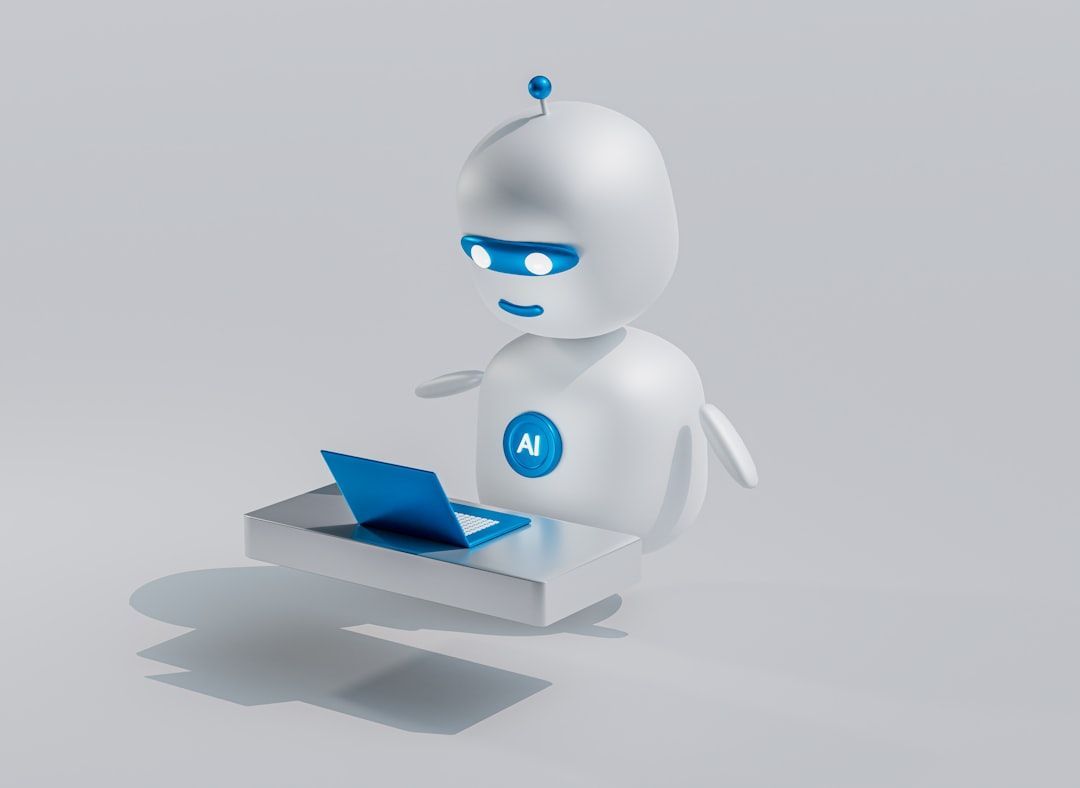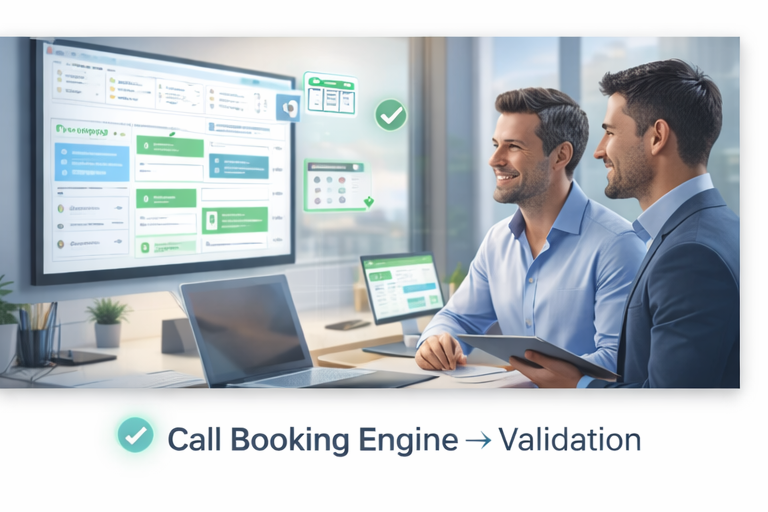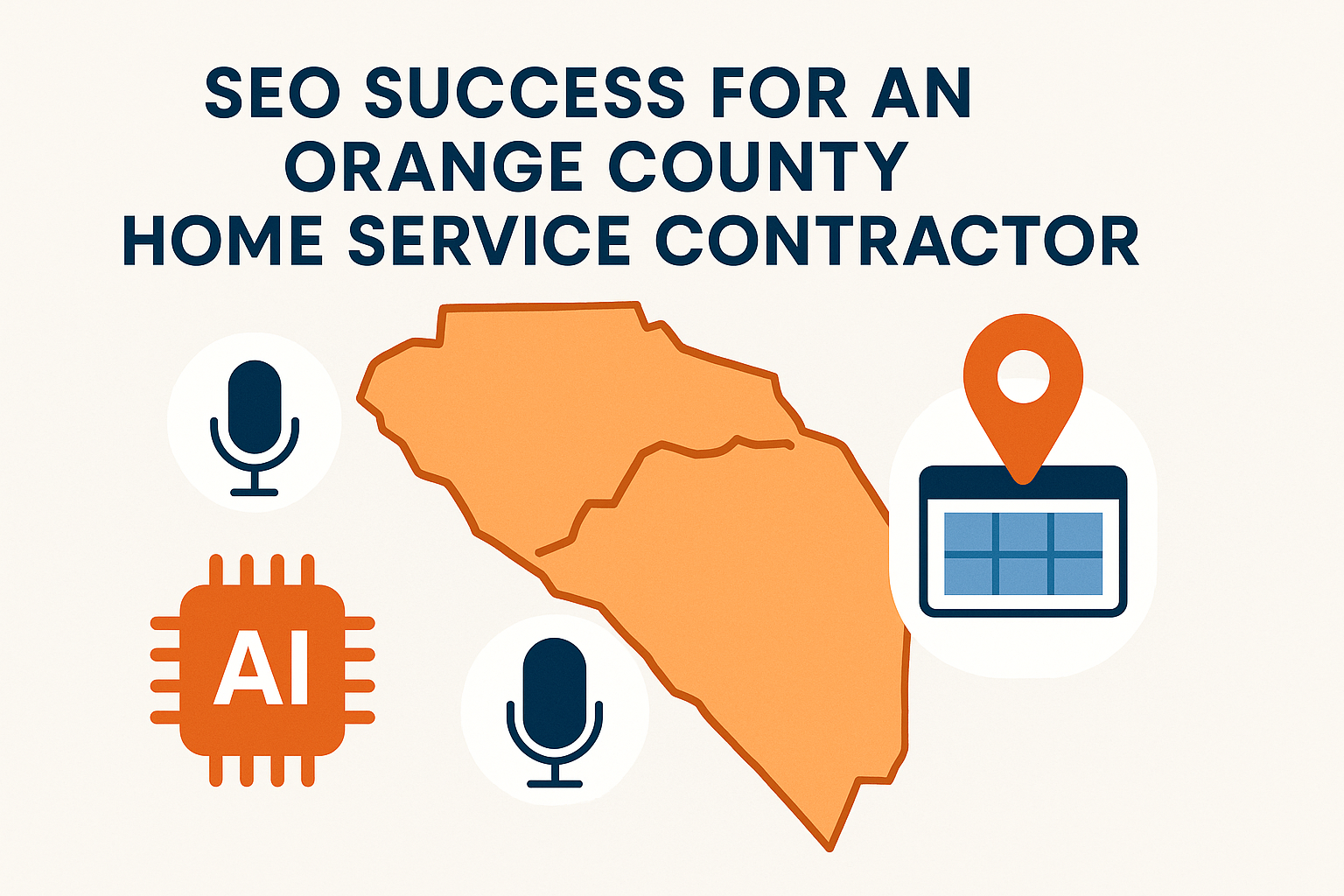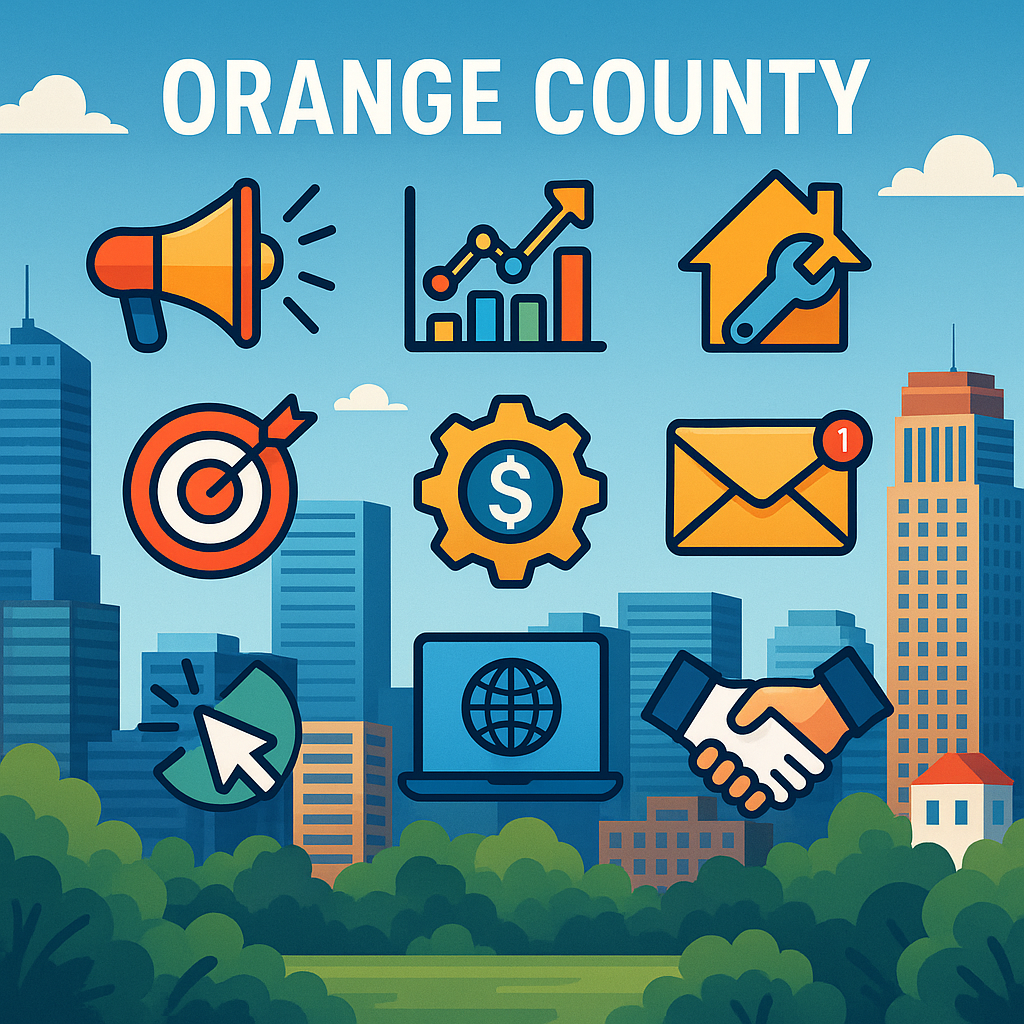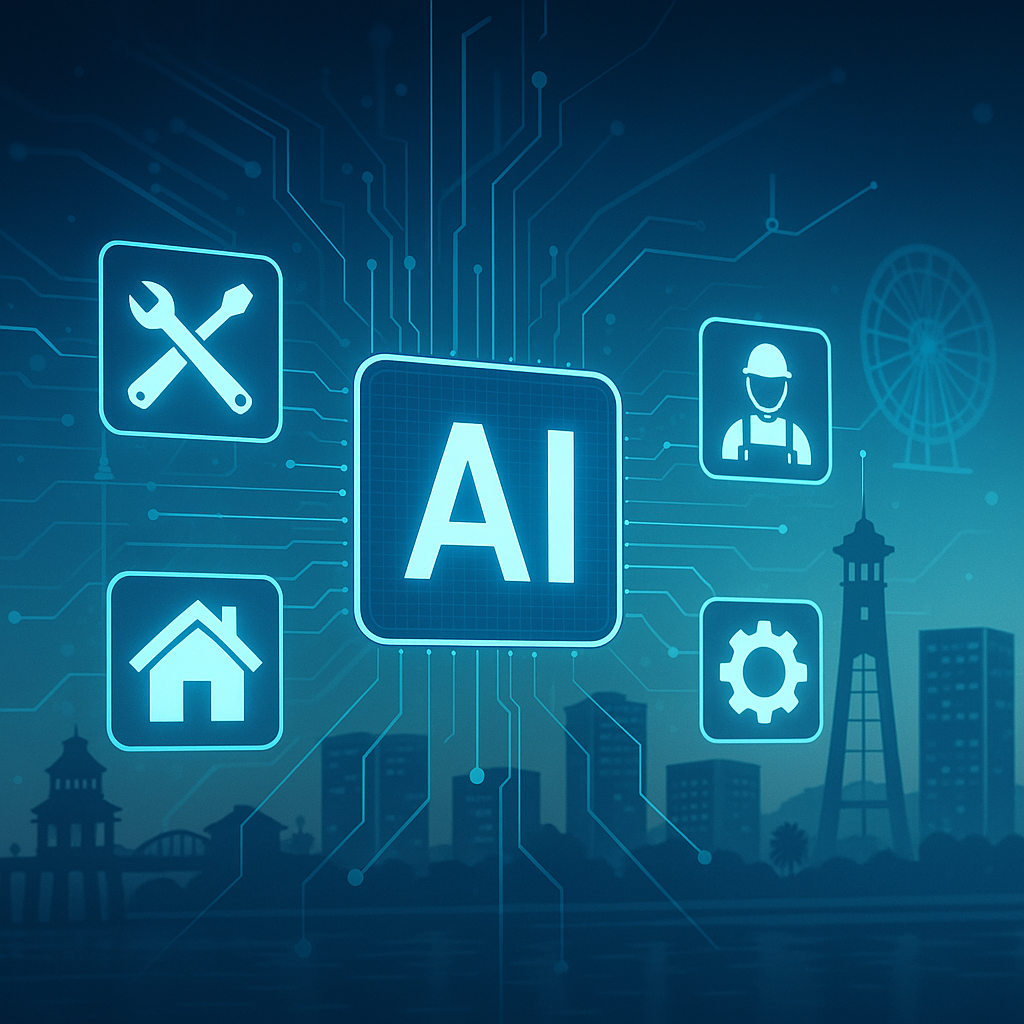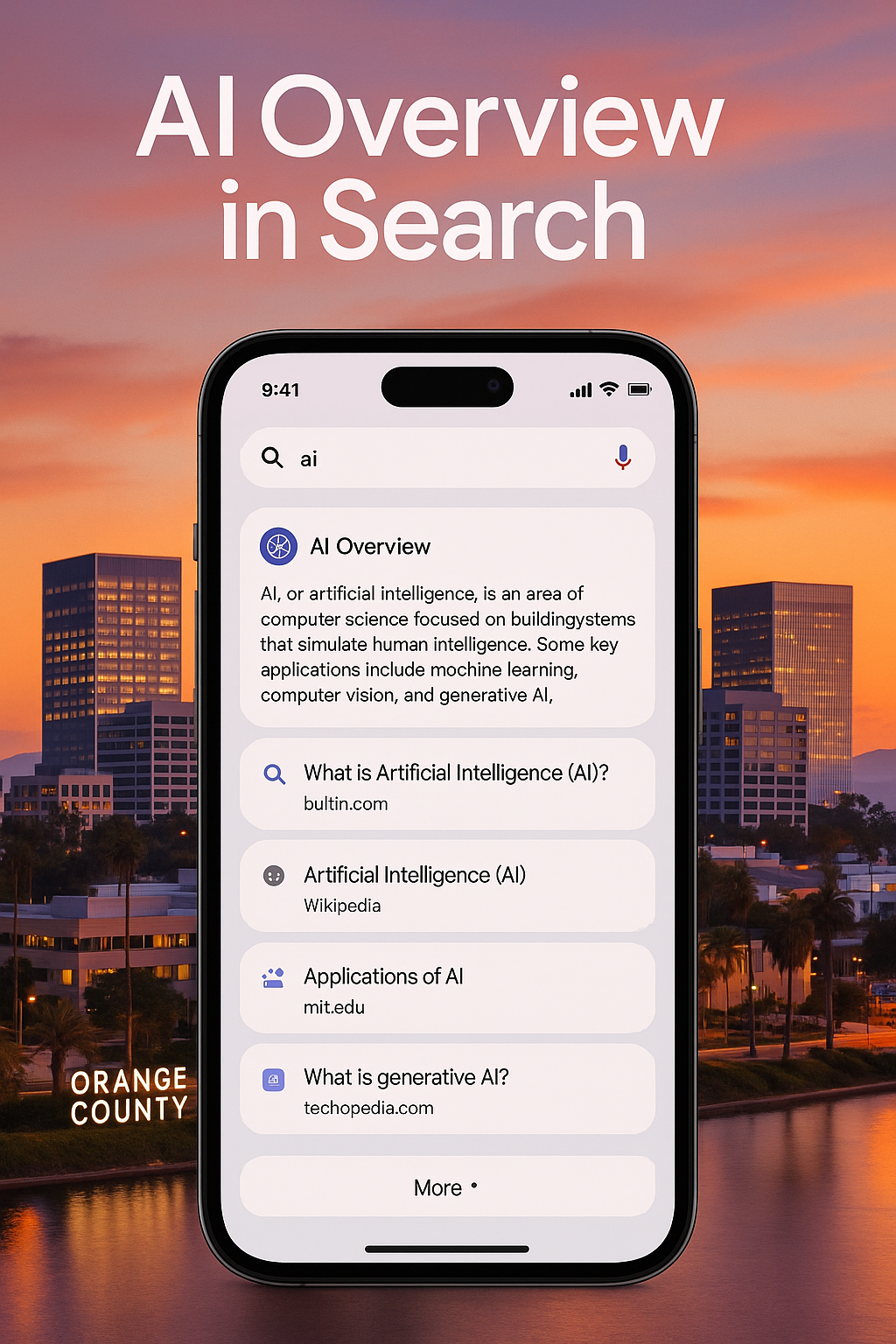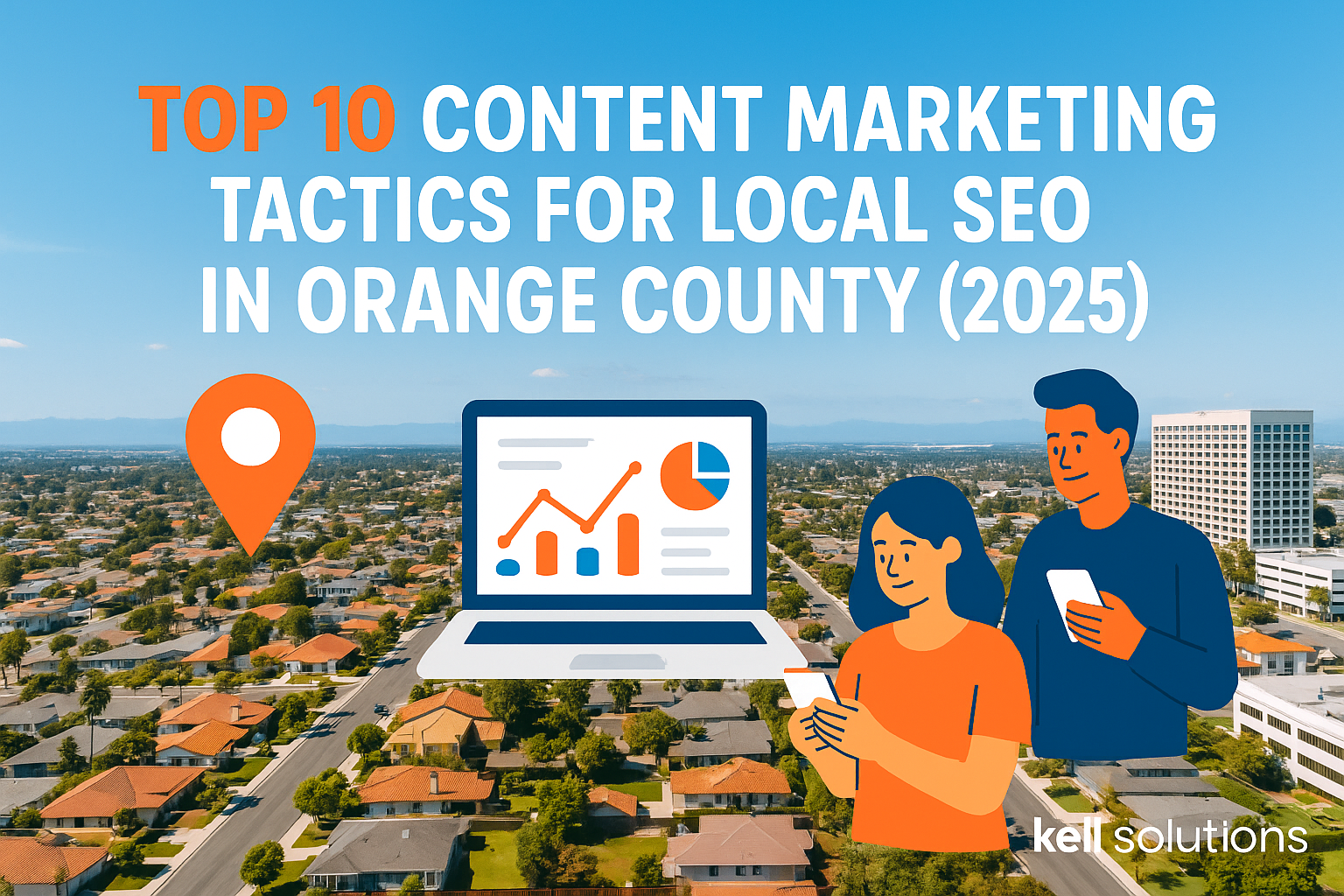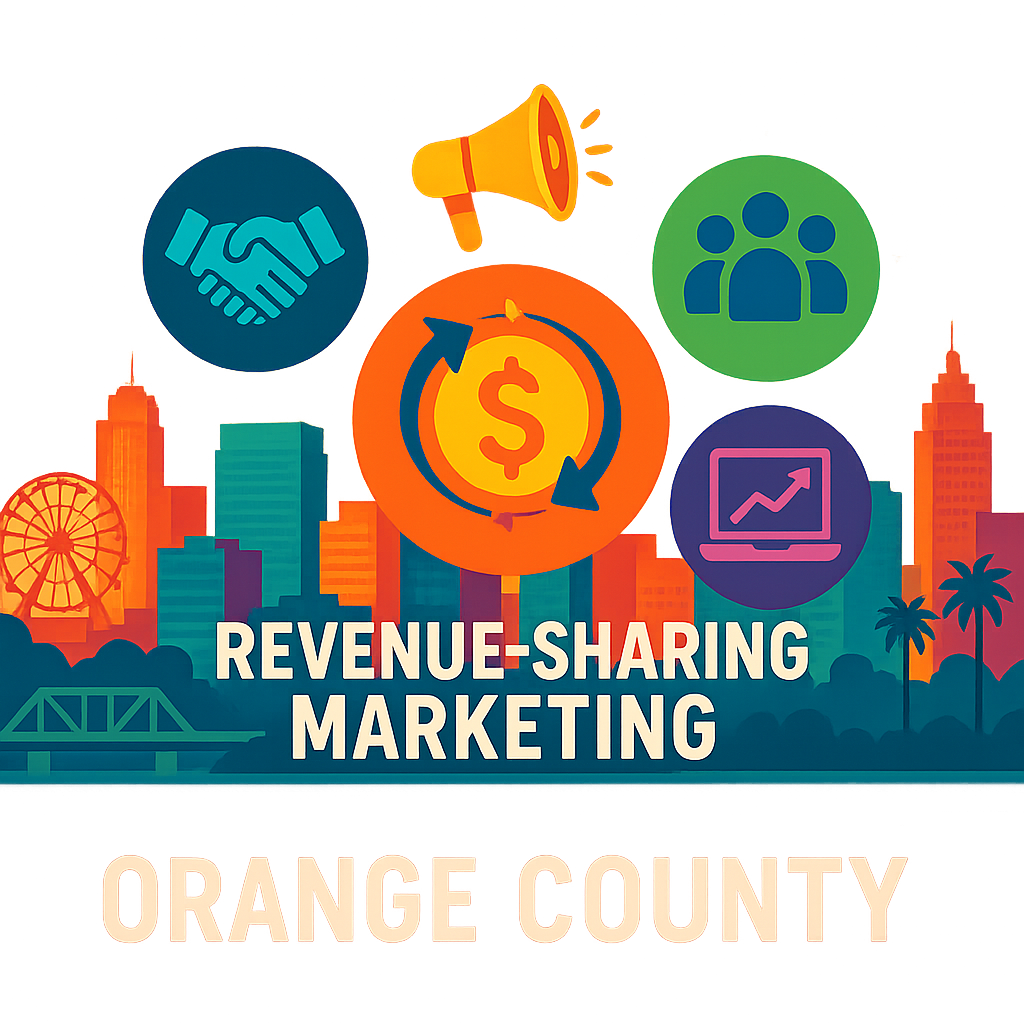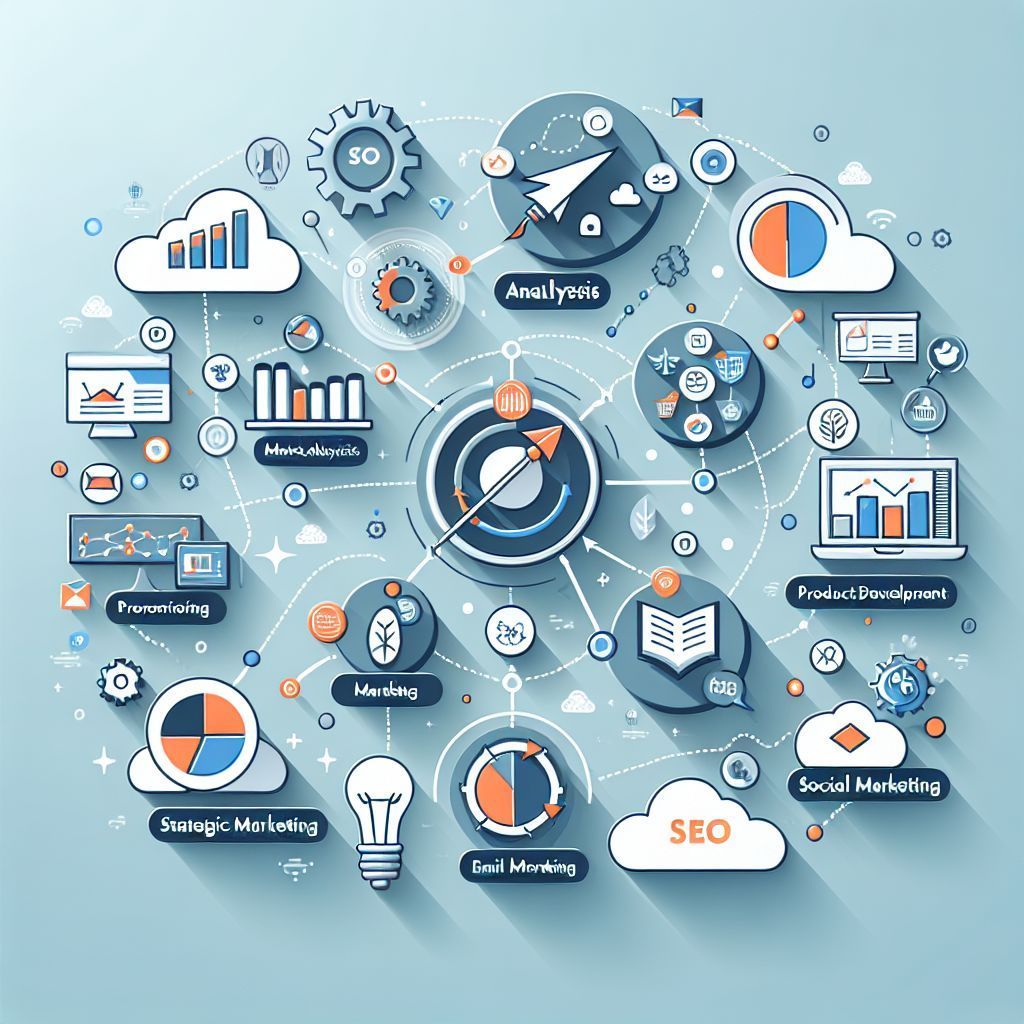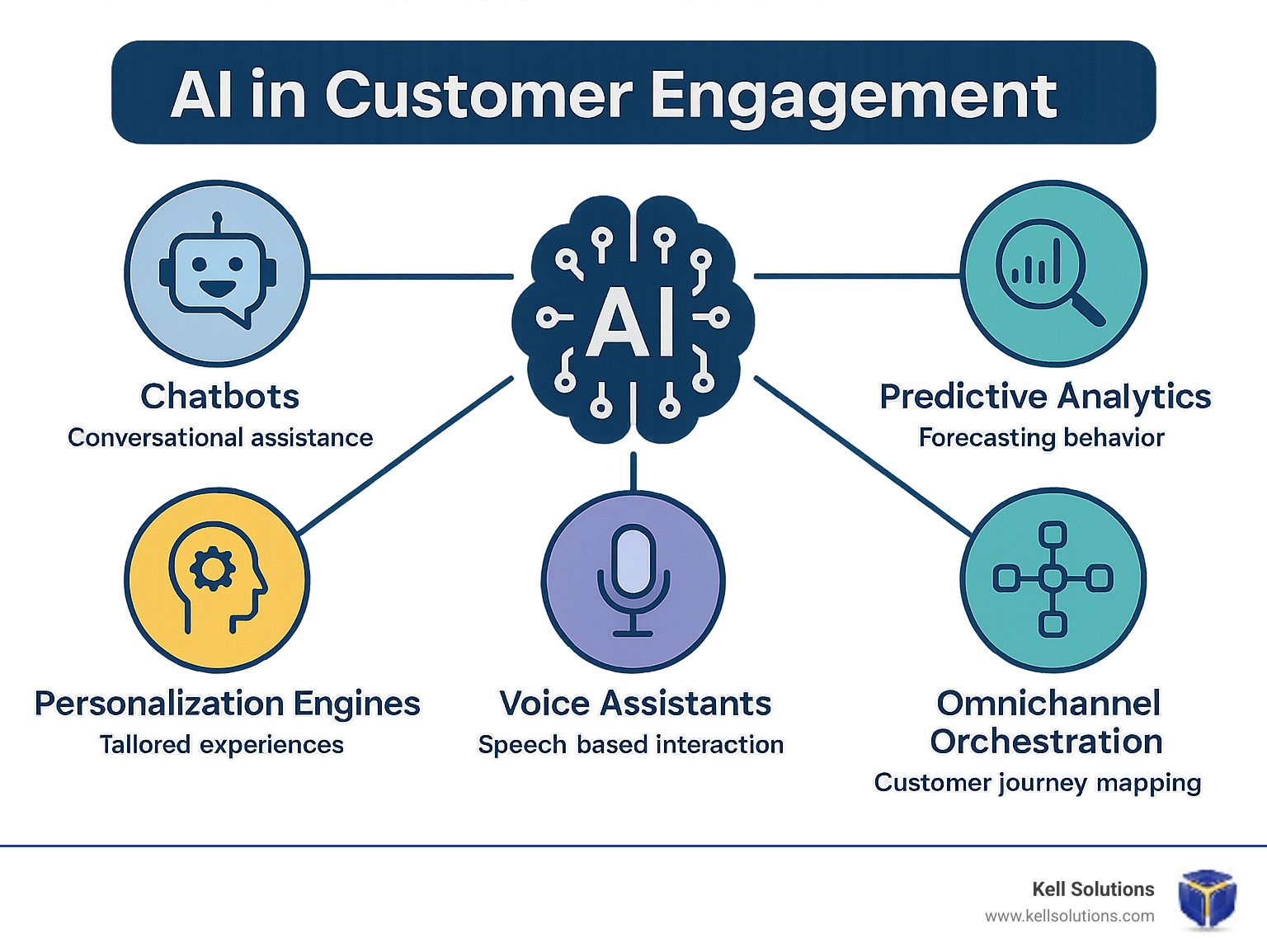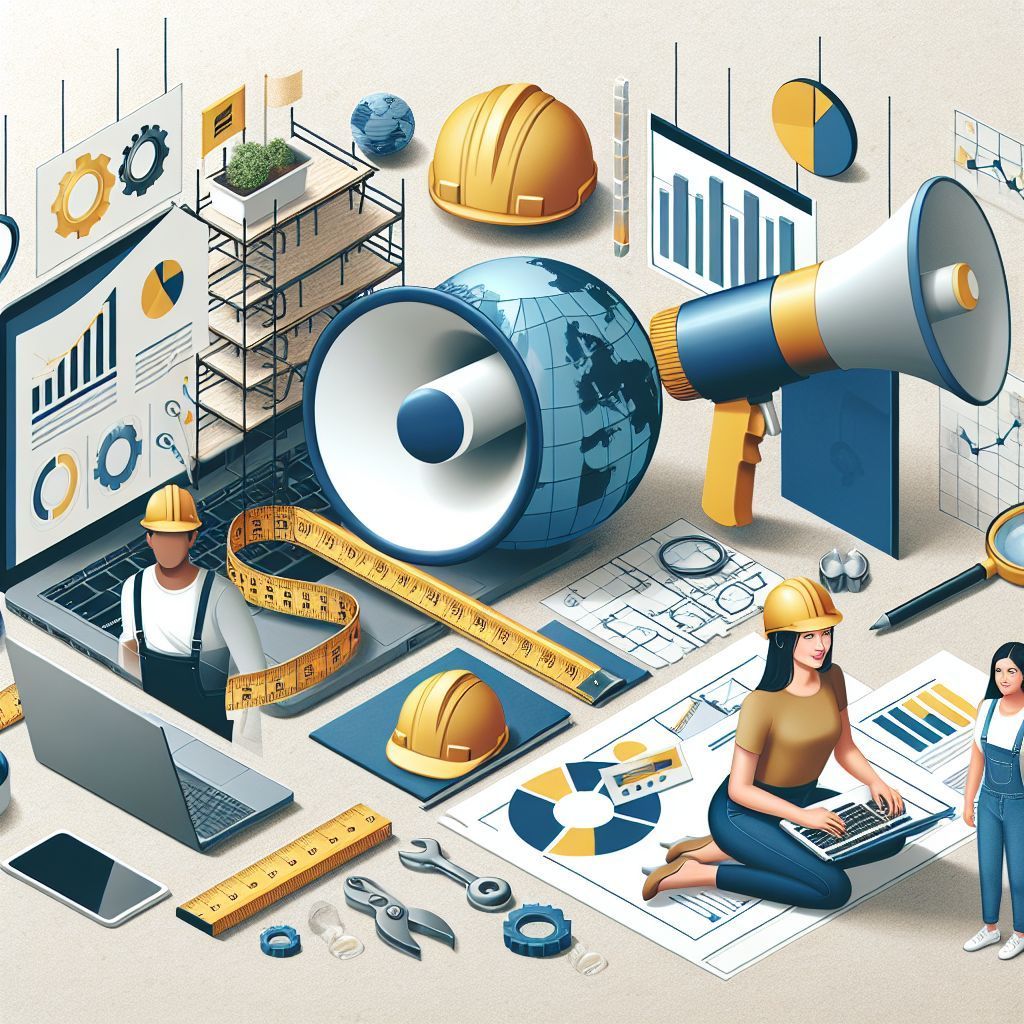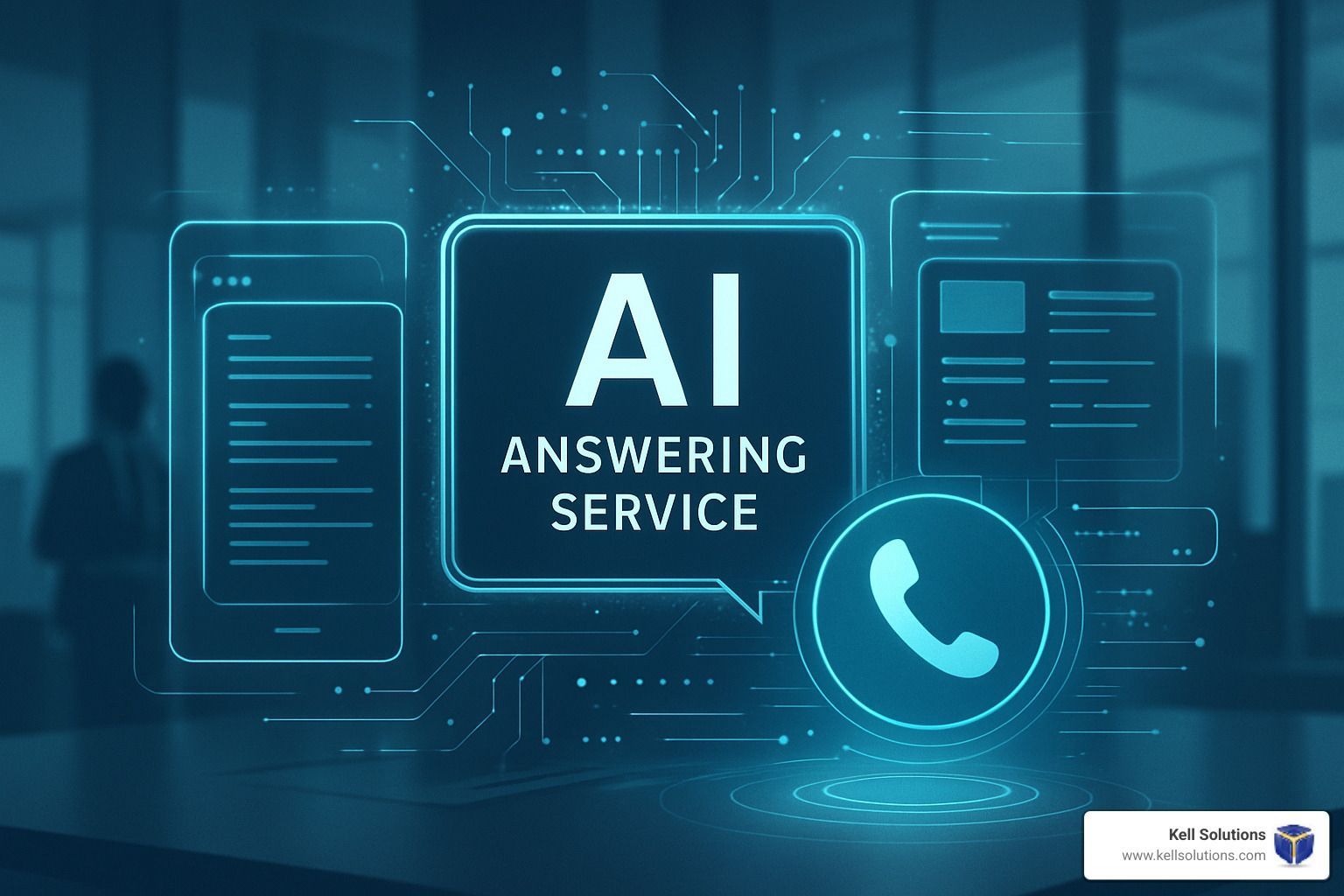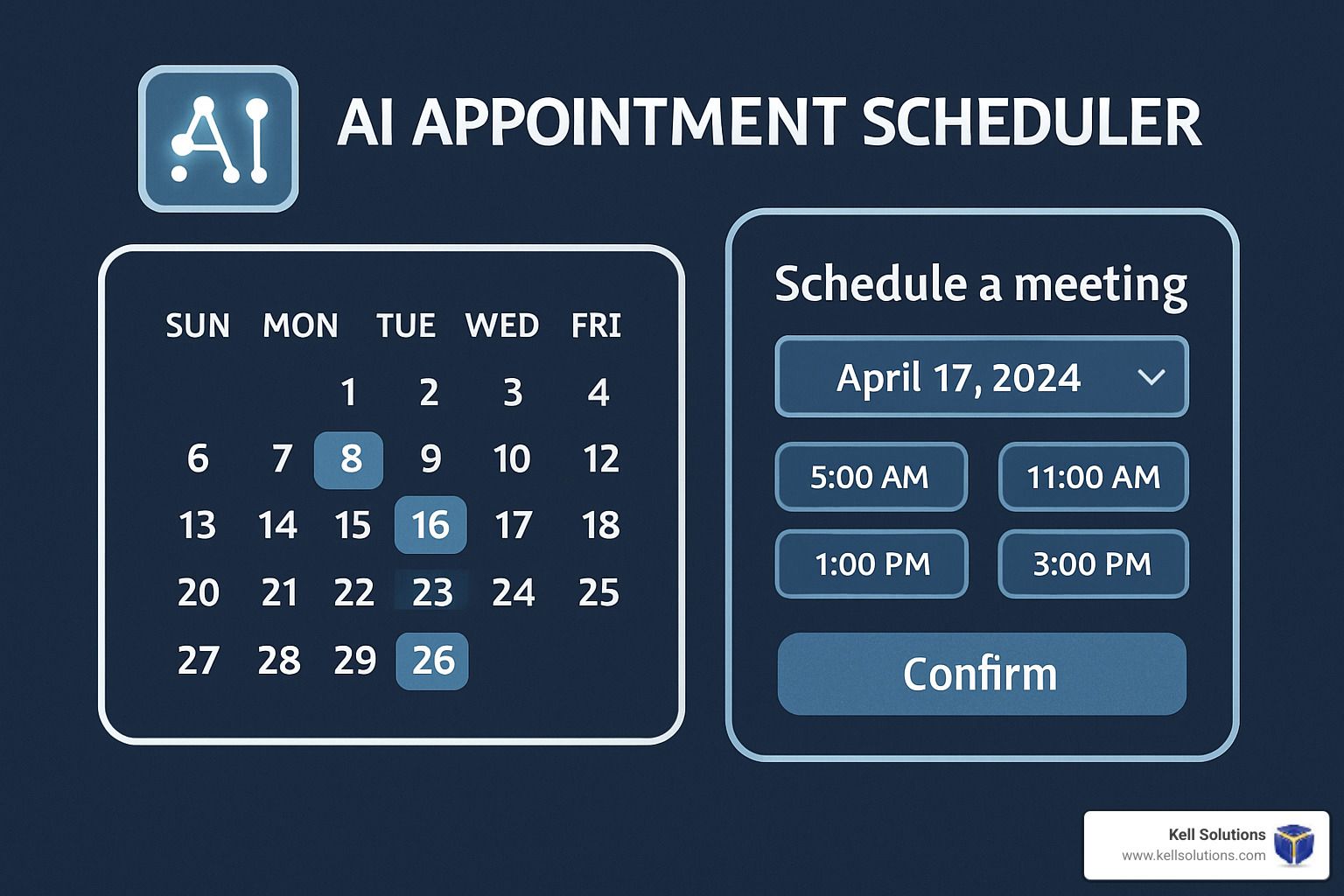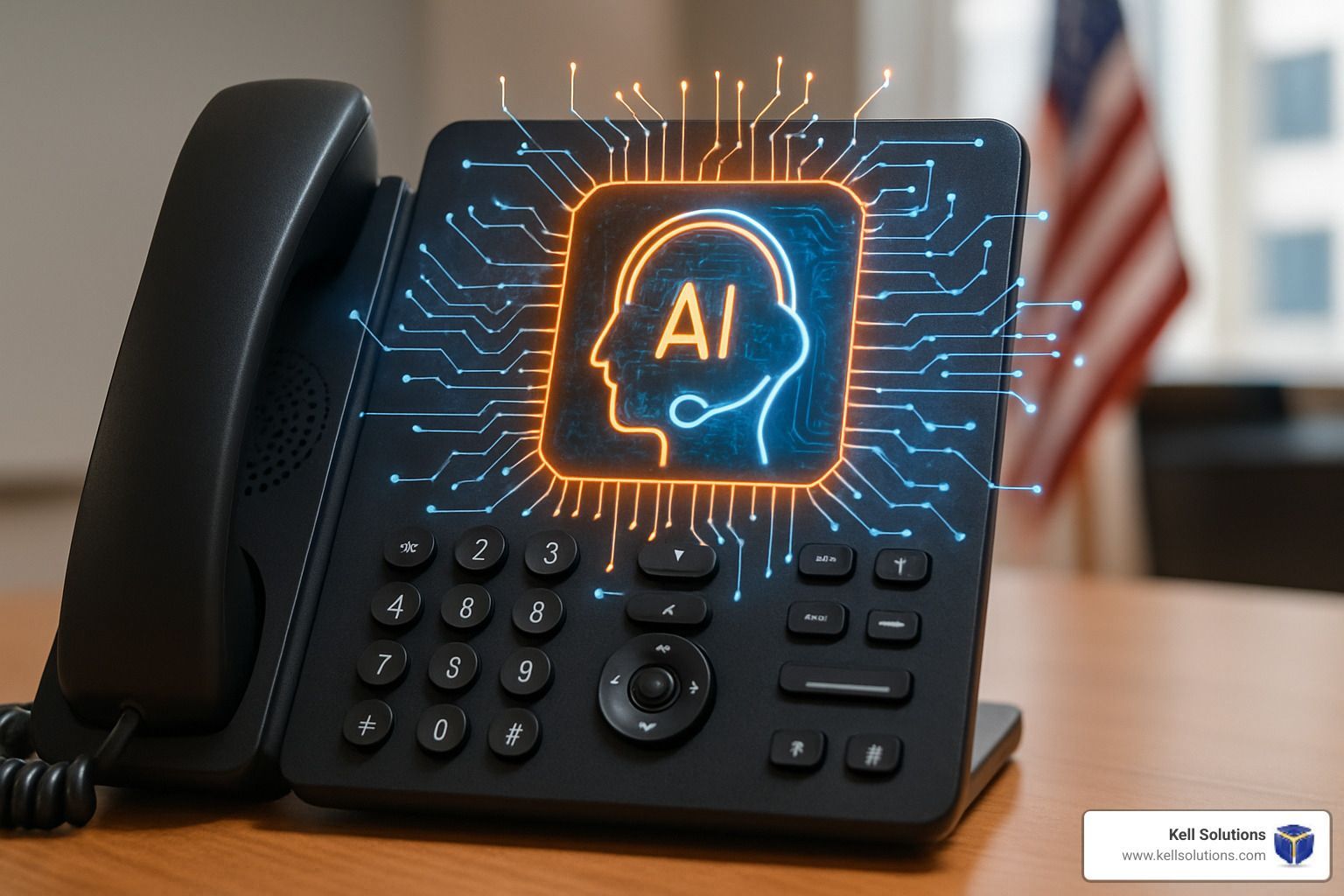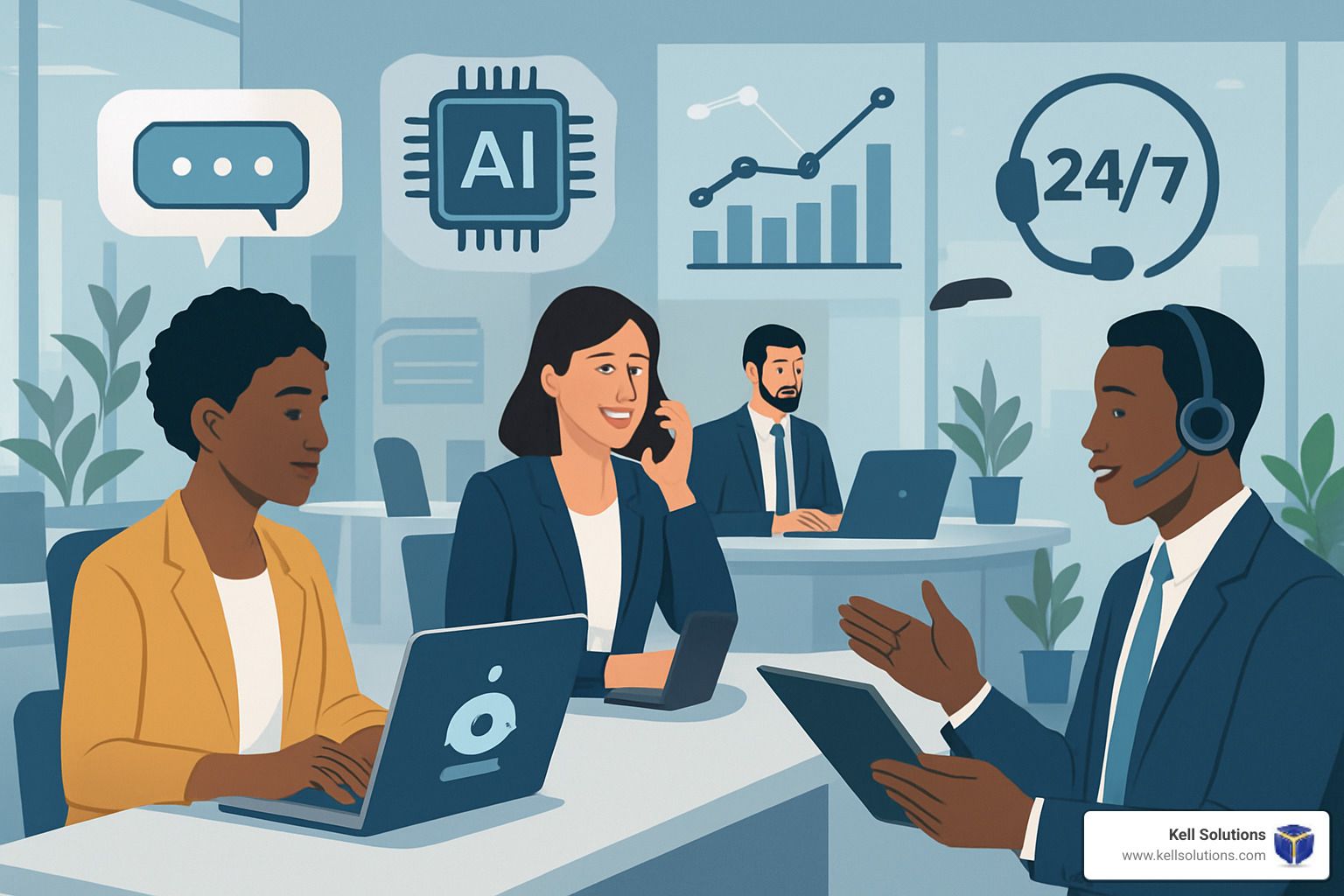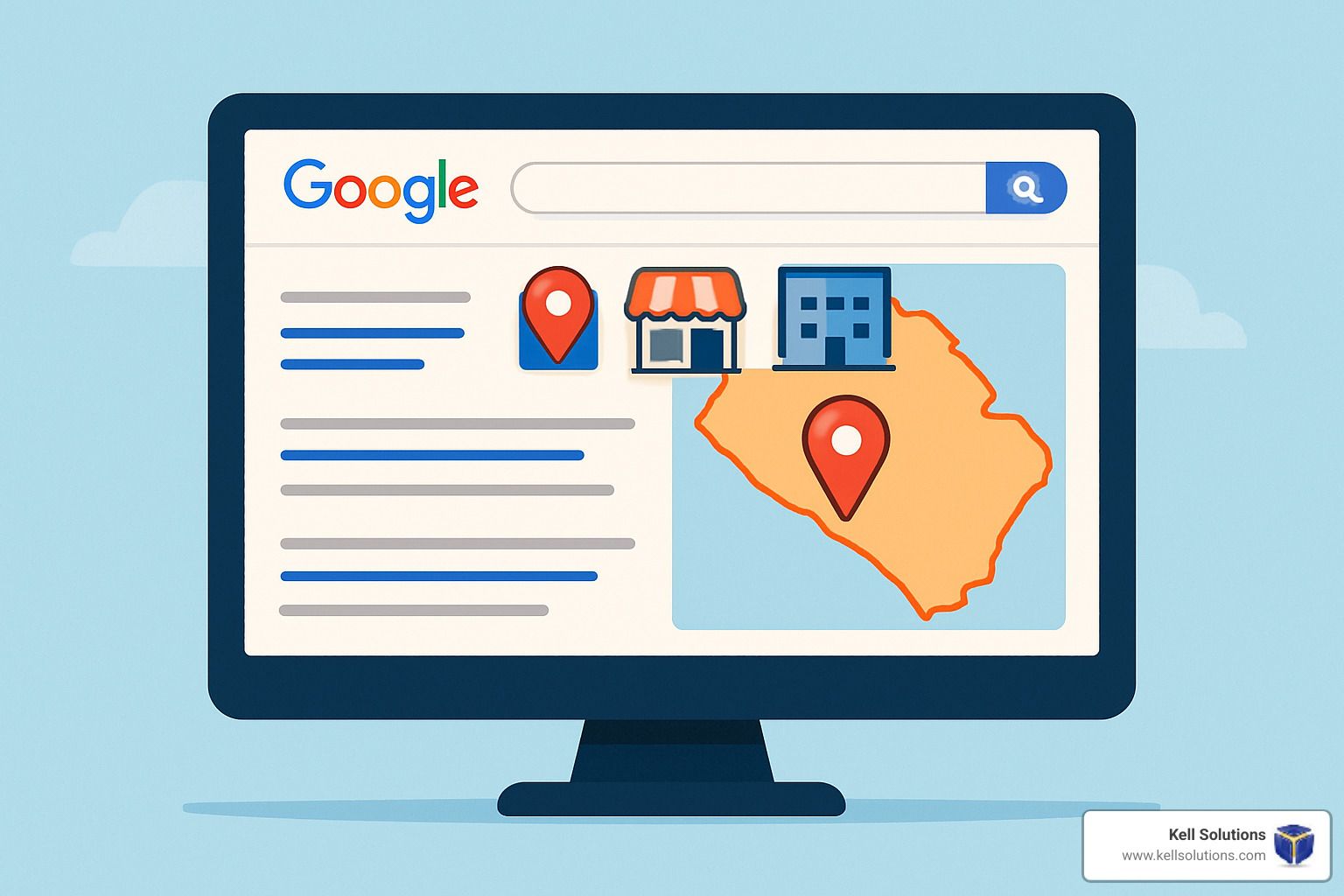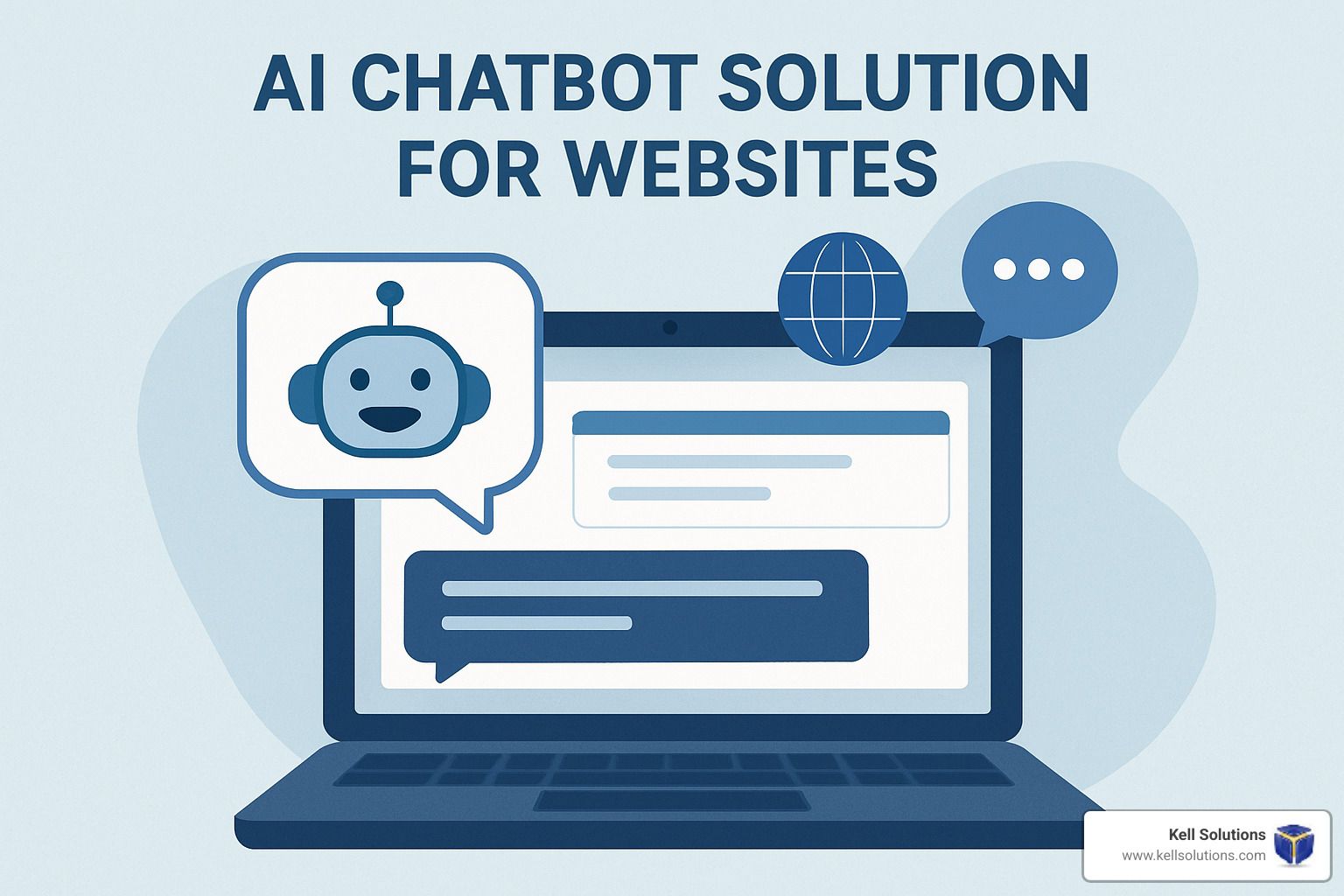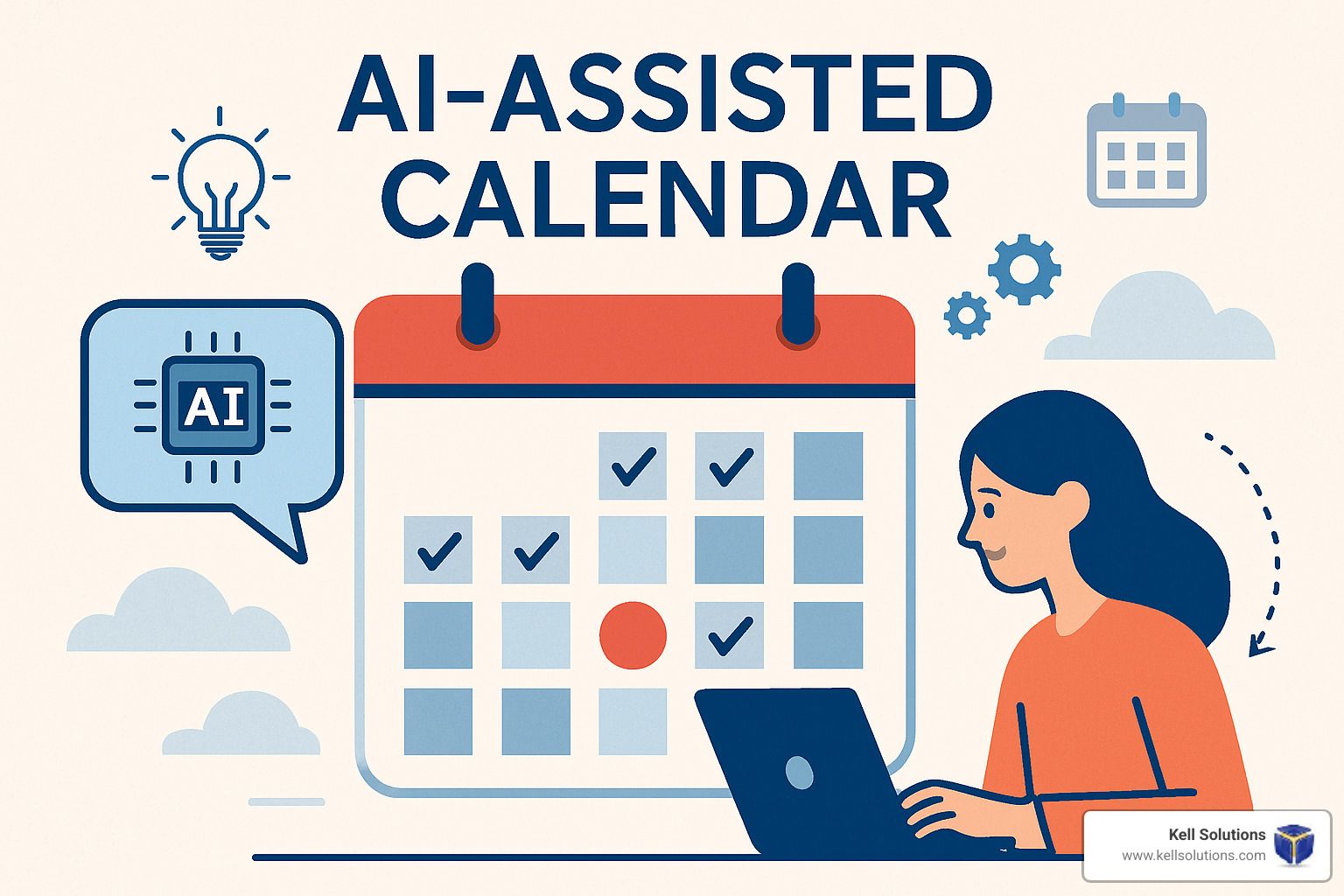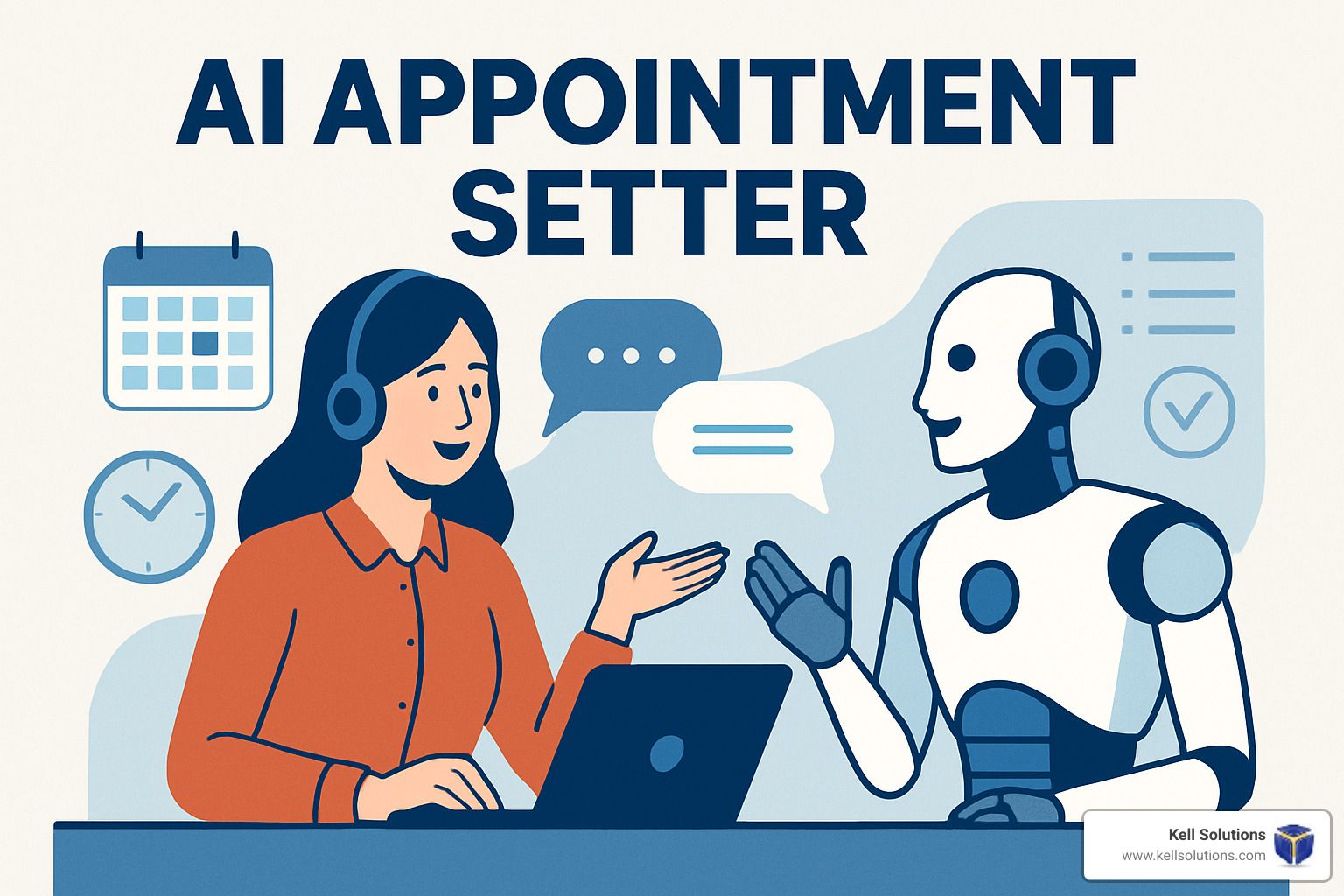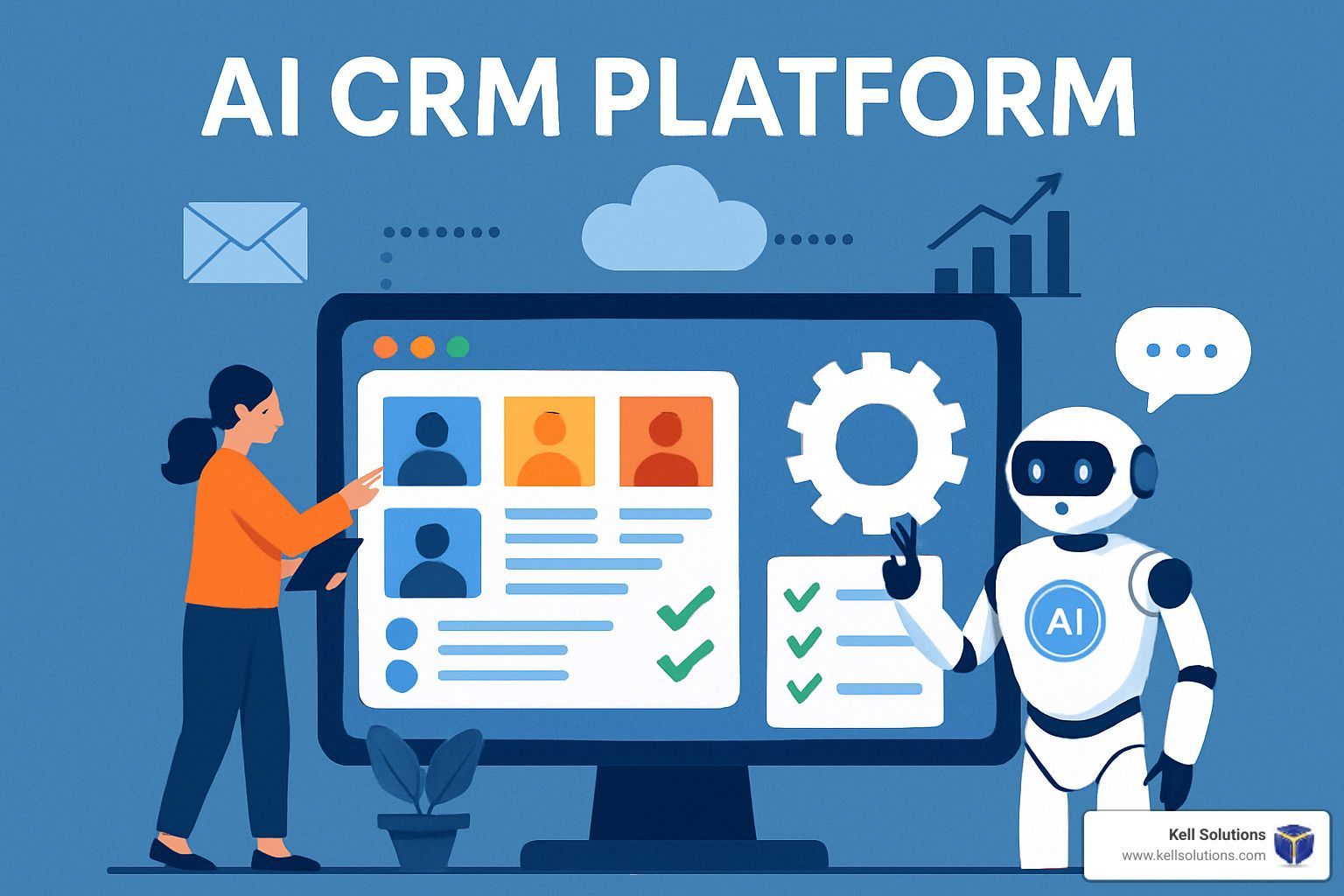How AI Executive Assistants Are Revolutionizing Office Management
Why AI Executive Assistants Are Changing Modern Business Operations
An ai executive assistant is not just another productivity app—it’s a 24/7 digital teammate that takes over repetitive office work so humans can focus on strategy and relationships.
Key capabilities at a glance:
• Email management – auto-sort, draft, and flag priority messages
• Calendar coordination – book or reschedule meetings instantly
• Task automation – reminders, follow-ups, and daily summaries
• Document handling – generate concise report overviews
• Travel planning – end-to-end itinerary booking
• Data insights – pull patterns from meetings and communications
Nearly half of today’s businesses already rely on AI assistants, saving an average of two hours per employee each day. For service firms we’ve helped at Kell Solutions, that time translates directly into faster responses, happier customers, and measurable revenue growth.
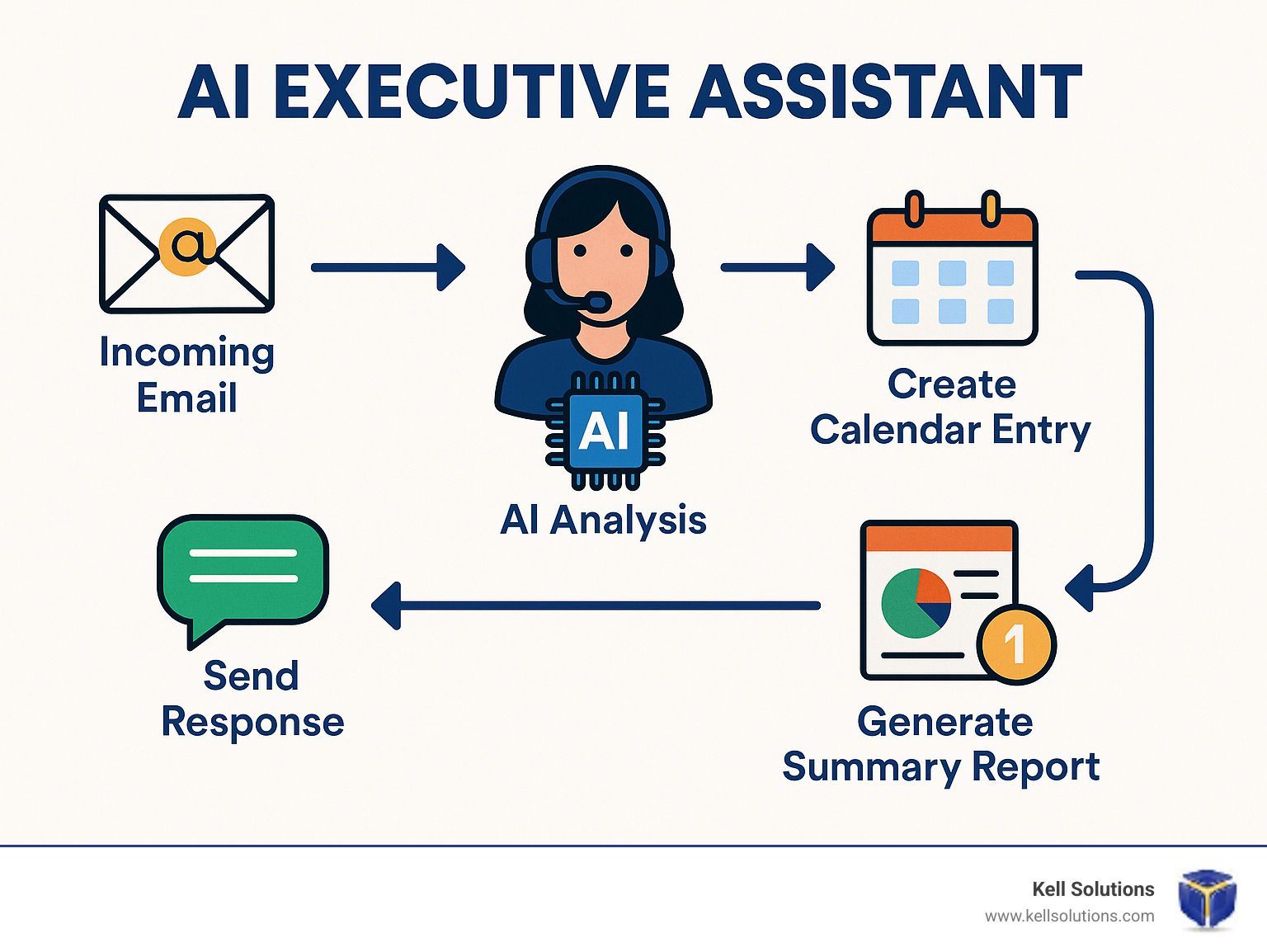
What Is an AI Executive Assistant?
Picture your most reliable employee—only faster, perfectly consistent, and available around the clock. That is the promise of an ai executive assistant, powered by large language models such as GPT-4 and connected to the rest of your tech stack through secure APIs.
Availability
24/7/365
Business hours
Response time
Seconds
Minutes–hours
Cost
Subscription
Salary + benefits
Scalability
Instant
Hiring & training
Memory
Unlimited
Human limits
How it works in four quick steps
- Data ingestion – Monitors email, calendars, CRMs, and chats in real time.
- Intent detection – Uses natural-language understanding to decide what needs to happen.
- Task execution – Schedules meetings, drafts replies, updates records, or escalates items per your rules.
- Feedback loop – Learns from every correction so accuracy improves over time.
What’s under the hood?
• LLM engine – Generates human-sounding text and understands context.
• Integration layer – Connects to 1,000+ business apps via API or webhook.
• Policy rules – Guardrails such as “never book before 9 a.m.” or “CC the project lead.”
• User preferences – Adapts to your tone, scheduling habits, and approval thresholds.
Because the system adapts continuously, your workflows feel more personalized each week without extra configuration.
Core Benefits & Game-Changing Use Cases
Implementing an ai executive assistant changes the economics of office work:
• Time savings – Reclaim up to 3-4 hours per knowledge worker every day.
• Cost efficiency – One subscription often replaces multiple admin hires.
• Deep-work focus – Fewer context switches mean better strategic thinking.
• Consistent customer experience – No missed calls or forgotten follow-ups.
• Effortless scale – Handle 50 or 500 emails with equal ease.
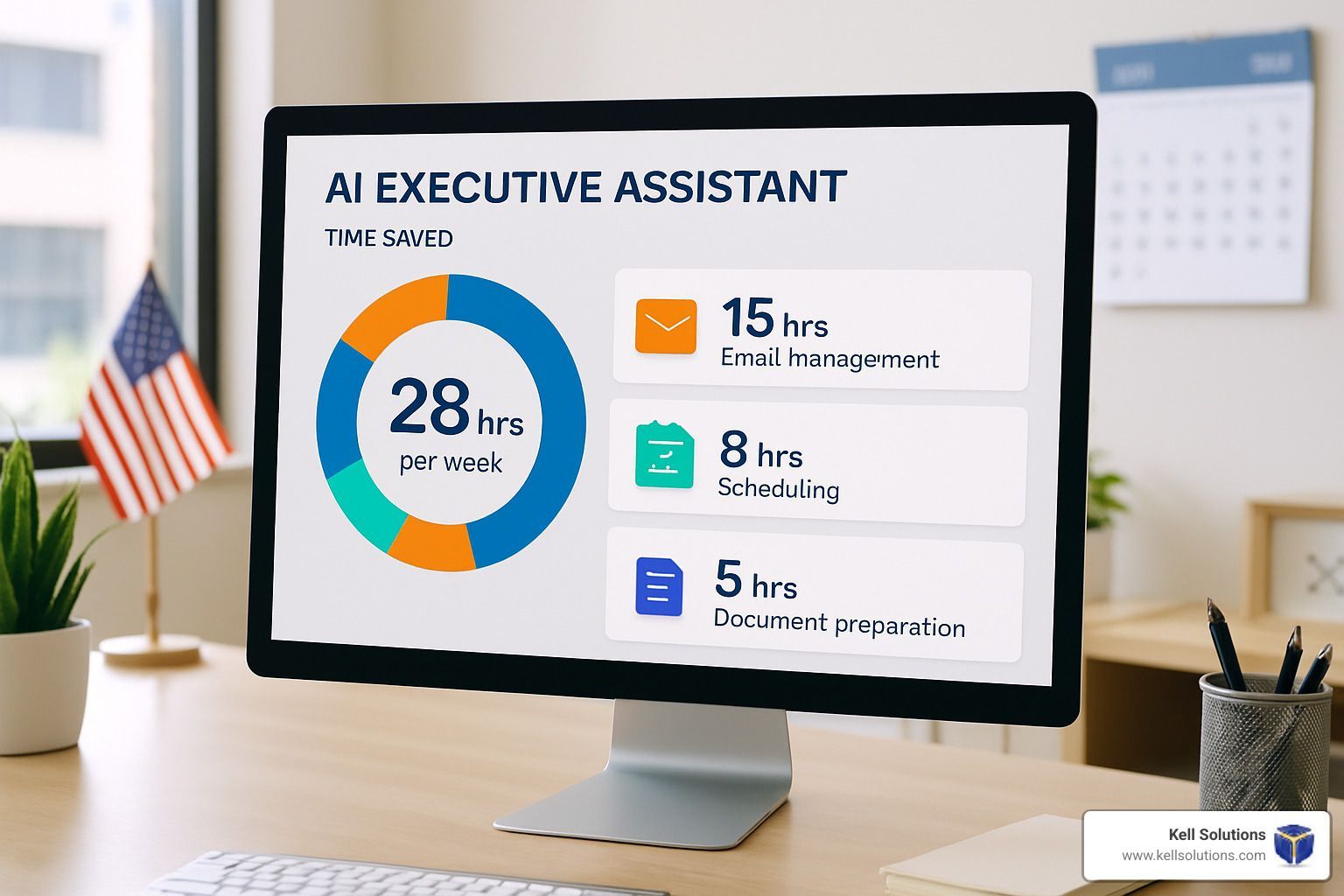
Common high-impact tasks:
• Meeting scheduling – AI finds the best time, sends invites, and rearranges when plans change.
• Inbox triage – Categorizes, drafts, and escalates only what needs human input.
• Travel logistics – Books flights, hotels, and adjusts plans when delays hit.
• Daily or weekly briefs – One digest of schedule, priorities, and metrics to start your day.
• Lead management – Qualifies prospects and books findy calls automatically.
Industry snapshots
• Legal – Track deadlines and schedule depositions without paralegal overtime.
• Healthcare – Coordinate multi-provider appointments while staying HIPAA compliant.
• SaaS sales – Keep demos, follow-ups, and renewals on autopilot.
Further reading: AI Integration in Business Processes.
Must-Have Features & Quick Evaluation Checklist
Choosing an ai executive assistant? Prioritize these essentials:
- Smart prioritization – Understands urgency, VIP senders, and deadlines.
- Deep integrations – Works with email, calendar, CRM, project tools, Slack, Zoom, and VoIP.
- Enterprise-grade security – End-to-end encryption and SOC 2 Type 2 certification.
- No-code customization – Configure workflows in plain English, not Python.
- Voice interface – Update schedules or take calls hands-free.
- Analytics – Track time saved, response speed, and ROI.
Essential integrations every platform should cover: Gmail/Outlook, Google/Outlook Calendar, Salesforce/HubSpot, Asana/Monday, Slack or Teams, Zoom or Meet, and voice systems like our own VoiceGenie AI.
For a deeper dive, see AI Agents for Businesses.
Security non-negotiables
• AES-256 encryption in transit and at rest• Granular permission controls & instant revocation• Comprehensive audit logs• Clear data-ownership terms—your data never trains someone else’s model
Preparing Your Organization for AI Executive Assistants
Rolling out an ai executive assistant succeeds when people view the tech as a partner, not a replacement.
Steps to smooth adoption:
- Start small – Pilot with a willing team, gather feedback, refine rules.
- Upskill human EAs – Teach prompt engineering and quality-control best practices.
- Track KPIs – Measure response time, hours saved, and employee satisfaction.
- Communicate benefits – Emphasize that AI removes drudgery so humans can focus on clients and strategy.
Future trend: Hyper-personalized assistants that proactively suggest optimal meeting times based on your energy levels or flag emerging customer issues before they escalate. Prepare now by defining clear human-in-the-loop policies.
For hands-on guidance, explore AI Training Strategies.
Frequently Asked Questions about AI Executive Assistants
What tasks can an ai executive assistant automate today?
The scope of what an ai executive assistant can handle today might surprise you. Think of it as having a super-organized team member who never sleeps and never forgets anything.
Email management sits at the top of the automation pyramid. Your AI can sort through hundreds of daily messages, prioritize them based on sender importance and content urgency, and even draft responses that sound like they came from you. It learns your communication style over time, so those routine "Thanks for the update" and "Let's schedule a follow-up" emails get handled automatically.
Calendar coordination becomes effortless when AI takes over. Your assistant can juggle complex scheduling scenarios involving multiple time zones, participant availability, and meeting room bookings. When someone requests a meeting with your team, the AI instantly analyzes everyone's schedules, proposes optimal times, and handles the inevitable rescheduling dance that follows.
Beyond these core functions, AI assistants excel at document preparation and travel planning. They can generate meeting summaries, extract action items from conversations, book complete travel itineraries, and track expenses automatically. Some advanced systems even handle basic customer inquiries and lead qualification, making them valuable for client-facing operations.
But let's be honest about the limitations. Your ai executive assistant won't replace human judgment when it comes to sensitive negotiations, complex relationship management, or reading between the lines in delicate situations. It's brilliant at following patterns and rules but might miss the subtle context clues that signal when someone is upset or when a routine request actually carries strategic importance.
How do AI EAs protect sensitive company data?
Data security isn't just important when choosing an ai executive assistant - it's absolutely critical. After all, you're giving this system access to your most sensitive business communications, client information, and strategic discussions.
The good news is that enterprise-grade AI assistants take security as seriously as banks handle financial data. AES-256 encryption protects all your information both when it's traveling between systems and when it's stored on servers. This is the same level of protection used by government agencies and financial institutions.
SOC 2 Type 2 compliance serves as your security guarantee. This certification means the AI provider has implemented comprehensive security controls and undergoes regular independent audits. For healthcare organizations, many providers also offer HIPAA compliance to protect patient information. These aren't just marketing buzzwords - they represent real, audited security standards.
Perhaps most importantly, reputable AI assistant providers guarantee that your data remains your property. They won't use your business communications to train other AI models or share your information with third parties. You get granular controls over what data the AI can access, what actions it can take automatically, and how long information is retained.
The best systems also provide detailed audit logs, so you can see exactly what your AI assistant did, when it did it, and why. If you ever need to revoke access or investigate an issue, you have complete visibility into all AI actions.
Will AI replace or empower human executive assistants?
Here's the truth that might surprise you: ai executive assistants are creating more opportunities for human assistants, not fewer. The organizations we work with at Kell Solutions consistently report that AI improves rather than replaces their human team members.
Think about it this way - when calculators were invented, they didn't eliminate accountants. Instead, they freed accountants from tedious calculations so they could focus on analysis, strategy, and advisory services. The same thing is happening with AI assistants.
AI handles the volume and consistency that would overwhelm any human. It can process hundreds of emails simultaneously, coordinate complex schedules across multiple time zones, and maintain perfect attention to detail on routine tasks. Meanwhile, human assistants focus on relationship management, strategic thinking, and complex problem-solving that requires emotional intelligence and nuanced judgment.
The most successful implementations we've seen involve human-AI partnerships where each does what they do best. The AI manages routine scheduling, email sorting, and basic communications, while human assistants handle stakeholder relationships, strategic project coordination, and situations requiring diplomacy or creativity.
This partnership model actually lifts the role of human executive assistants. Instead of spending hours on calendar management and email triage, they can concentrate on high-value activities like executive coaching, strategic planning support, and building the relationships that drive business success. Many organizations find that this shift makes their human assistants more valuable and engaged than ever before.
The future isn't about choosing between human or AI assistants - it's about combining their strengths to create a more effective, responsive, and strategic support system for your business operations.
Conclusion
AI executive assistants are already changing day-to-day operations for companies of every size. By handing routine tasks to a tireless digital teammate, teams reclaim hundreds of hours each year for revenue-generating work and client relationships.
Ready to experience that shift? See how VoiceGenie AI—our 24/7 voice agent—answers calls, captures leads, and books appointments without missing a beat. Request a free demo here: https://www.kellsolutions.com/voicegenie-ai#RequestADemo
📚 About the Author Gregg Kell is a seasoned digital marketing strategist and founder of Kell Web Solutions, Inc., helping professional service firms grow through innovative AI-powered solutions like VoiceGenie AI. With over 20 years of experience in web development, lead generation, and business automation, Gregg is passionate about helping small businesses maximize growth and profitability through cutting-edge technologies.
When he's not helping businesses boost their bottom line, Gregg enjoys life by the beach in Laguna Beach, California, with his wife Debbie, celebrating over 40 years of marriage and entrepreneurial trips.
👉 Explore More from Gregg:
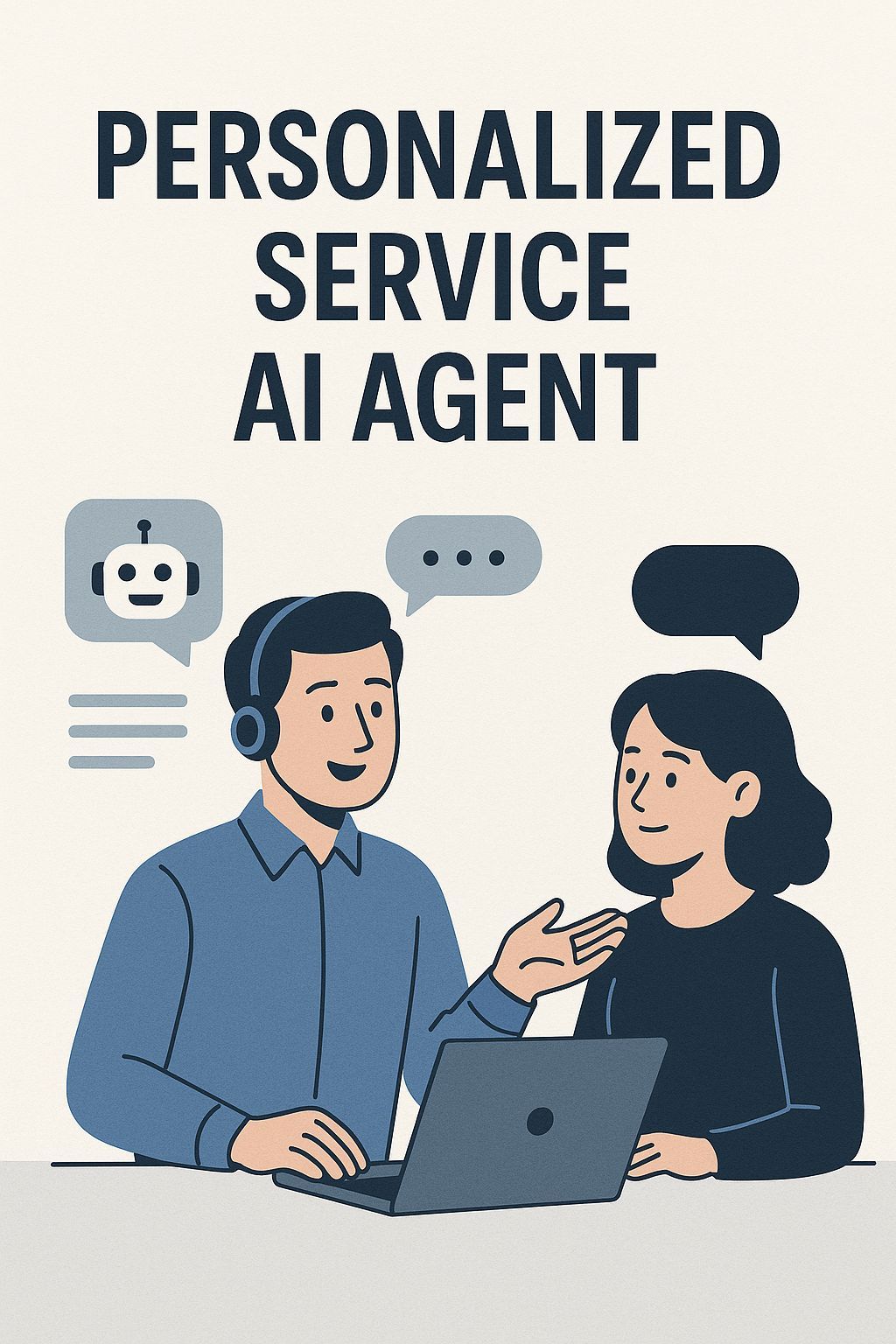

Orange County HVAC Google AI Overview Domination: 7 Proven Strategies to Capture Featured AI Results


